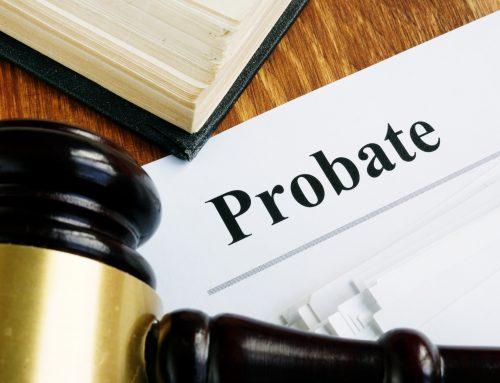Less than one-third of American adults have a will. Even among Americans 55 years of age or older, less than half have a legal will or have completed any estate planning.
But is this really a problem? How important is it to work with an estate planning attorney in Indianapolis? What happens to your property and finances upon your death if you don’t?
Here’s what every family needs to know about estate planning and probate law.
What Is Probate?
Probate law is the body of law that governs the handling of your assets when you die. In all cases, it involves:
- Identifying and valuing your assets
- Identifying any debts you owe or other claims on your estate
- Notifying all prospective heirs
- Ascertaining what your estate owes in taxes
- Dividing your estate
If you die with a will, probate involves:
- Determining that the will is valid, legal, and final
- Addressing any challenges to the will
- Adjudicating situations in which the will is found to be non-compliant with the law
- Identifying and addressing the distribution of any assets not accounted for by the will
If you leave no will, then state and federal laws are applied to divide and reassign your assets. This process can take years to complete. It is often expensive, messy, and stressful for everyone involved.
In situations where there is no will, probate rarely results in the outcomes the deceased expected or wanted. Unexpected amounts of money are lost to taxes and legal fees. The law may force the sale of properties and beloved possessions the deceased intended to pass on to their heirs.
While many Americans believe that their spouses or children will automatically inherit their homes or assets, this is not the case.
The Benefits of Estate Planning
The primary purpose of estate planning is to:
- Take control of your assets and identify any assets that pass by operation of law
- Prevent the unnecessary loss of assets when you die
- Protect your loved ones in the event of your death
If you die without proper legal planning and arrangements, your family is at the mercy of the law. The law, rather than your wishes, will dictate who gets what. The end results often end up satisfying no one.
Your family will also likely pay large amounts of money out of the estate during the probate process. By the time everything is settled, there may be nothing left. Worse, your family may face debts from settling your estate!
Estate planning, by contrast, gives you control.
An Indianapolis estate planning and probate attorney can help you select, sign, and file the right documents to:
- Ensure that your home, bank accounts, and other assets pass seamlessly to the people of your choice
- Avoid hefty fees and taxes during those transitions
- Spare your family the time and strain of a lengthy probate process
Protecting Your Loved Ones
Perhaps most importantly, estate planning helps you protect the people that you love. This is important for everyone but can be especially crucial if:
- You and your partner are not legally wed
- You have minor children
- You are the caretaker for a disabled parent, spouse, child, or sibling
- Third-parties such as ex-spouses or children by people other than your spouse may have a claim on your estate
Working with an estate planning attorney in Indianapolis can give you the peace of mind of knowing exactly what will happen when you die.
Why Working With Indianapolis Probate Attorneys Is Vital
Estate planning and probate law can be complex. To be successful you must take into account:
- State and federal inheritance laws
- State and federal ownership and tax laws
- Detailed wording and filing requirements for legal documents
While you could attempt to write a plan and a will by yourself, it would be a massive undertaking. Even small mistakes could cost you dearly in the long run. Moreover, working alone makes you less likely to identify and take advantage of creative options that could help you achieve your goals, such as living trusts.
A host of online tools and programs claim to help Americans write their own wills and estate plans. In reality, these are rarely any better than doing the work alone. They simply cannot account for the vast complexities of modern family and financial landscapes.
It is all too easy to miss state-specific rules and laws using such tools. As with working alone, you also miss out on the chance to take advantage of creative solutions.
Indianapolis estate planning attorney, by contrast, have the knowledge and experience to help you:
- Make plans that abide by and account for all relevant laws
- Navigate complex financial or personal situations
- Identify creative solutions to common problems
- Make informed and satisfying decisions about what you want
- Create and file documents that will stand up in court
- Create and file documents that will result in exactly what you want to happen
Your attorney can also interface with your CPA, your financial advisor, and other professionals you are working with to help smooth communication and reduce the effort needed on your part during the planning process.
No Estate Is Too Small
Some Americans make the mistake of believing that estate management is only for the wealthy. They assume that because they have only modest assets, they have no need for formal estate planning.
This is a dangerous misconception. In reality, even small estates can be hit hard by probate and taxes. In fact, families with fewer assets to begin with tend to be less able to handle the costs and losses of probate than those with larger estates.
No matter how small or simple you believe your estate to be, it is important to consult an attorney when writing your will and laying plans to protect your family in the event of your death.
Schedule a Consultation
No matter what your age, estate planning is the only way to protect the people you love and your assets when you die. Schedule a consultation today to talk to an Indianapolis probate attorney about how they can help you take control of your estate and spare your family the stress and costs of probate.






